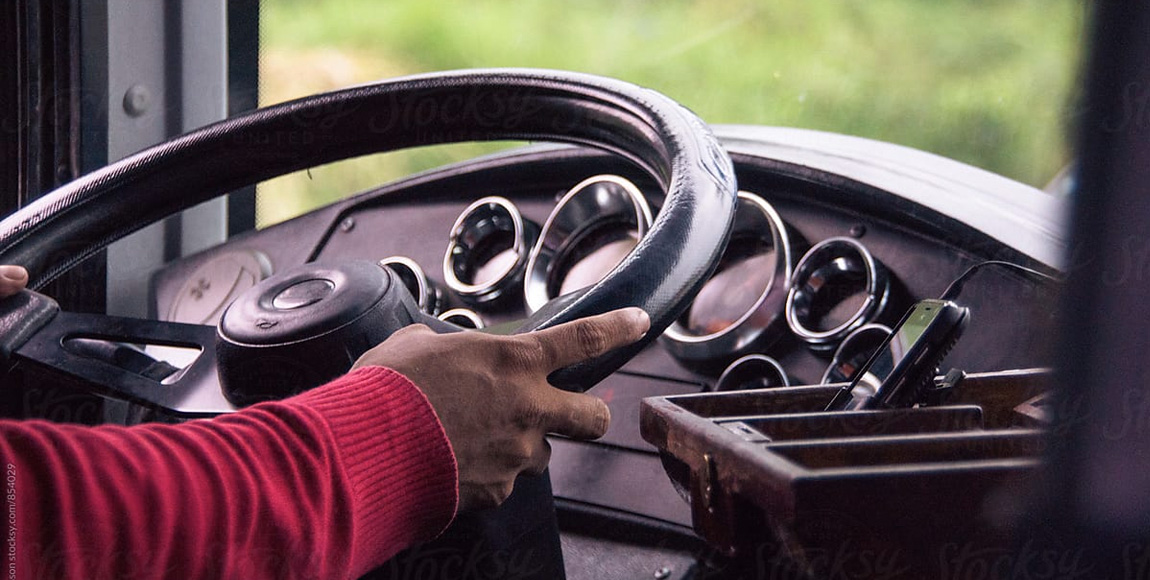Revealed: how to fight coronvirus in buses

The coronavirus is here in South Africa – and it can obviously be spread via public transport. Now a company based in the United Kingdom has come up with an innovative way of curtailing the spread of the disease in buses
According to Roger Brereton, head of sales at bus and coach at Pailton Engineering, a bus can be a perilous place when it comes to germs.
 “From dirty windscreens and sticky steering wheels to polystyrene cups strewn all over the cabin, bus drivers have to endure a whole host of unhygienic cabin conditions. The frequent changeovers required to fulfil bus rotas mean that many bus drivers start their shift in unhygienic conditions, with little traceability on who is the culprit that left the mess and debris behind. Operators have plenty of other challenges, such as timetable management, which inevitably make bus hygiene a relatively low priority,” he notes.
“From dirty windscreens and sticky steering wheels to polystyrene cups strewn all over the cabin, bus drivers have to endure a whole host of unhygienic cabin conditions. The frequent changeovers required to fulfil bus rotas mean that many bus drivers start their shift in unhygienic conditions, with little traceability on who is the culprit that left the mess and debris behind. Operators have plenty of other challenges, such as timetable management, which inevitably make bus hygiene a relatively low priority,” he notes.
To raise hygiene levels in the bus cabin, he says operators must prioritise their resources and target specific areas for improvement. “With 629 colony-forming units of bacteria on an average steering wheel, compared to just 172 on a toilet seat, the steering wheel is a good place to start,” he notes.
Operators often provide disinfecting wipes to drivers. However, the use of certain wipes will cause the steering wheel material to degrade over time. Further innovation is needed to tackle specific hygiene-related issues for drivers. So, what more can be done to raise hygiene standards in the bus cabin?
Engineers at Pailton Engineering have developed a new detachable steering wheel concept to raise awareness of bus cabin hygiene and demonstrate the real need to empower drivers with more control over their work environment.
While changing workplace conditions doesn’t happen overnight, Pailton Engineering wants to support operators to make this change, with its problem-solving engineering concepts.
Showcased at Busworld for the first time this year, the new detachable steering wheel concept has already generated a great deal of interest from bus manufacturers and industry bodies alike.
“While the concept is still in its development phase, it highlights the possibility for drivers to bring their own wheel to work one day. Similar to the “bring your own device” (BYOD) office culture, “bring your own wheel” (BYOW) is a futuristic concept that could be a reality with the right regulation,” explains Brereton.
The bus and coach sector is set to see a huge shift in priorities, driven by new engineering concepts that have the potential to improve road safety, hygiene levels and ergonomics for drivers. “Ultimately, drivers need to feel comfortable in their workplace, and if this results in less work-related sickness, then it is win-win,” Brereton concludes.
Published by
Focus on Transport
One Comment
Leave a comment Cancel reply
focusmagsa





We designed and developed this system long before COVID-19 came into existence, to help combat seasonal flu and colds, and protect the health of bus drivers. We believe that any steps taken by operators and other businesses to reduce health risks will always be a good thing. This is a great piece of timely journalism, but we would like to stress that our intention today is not to take advantage of the Coronavirus for commercial reasons.